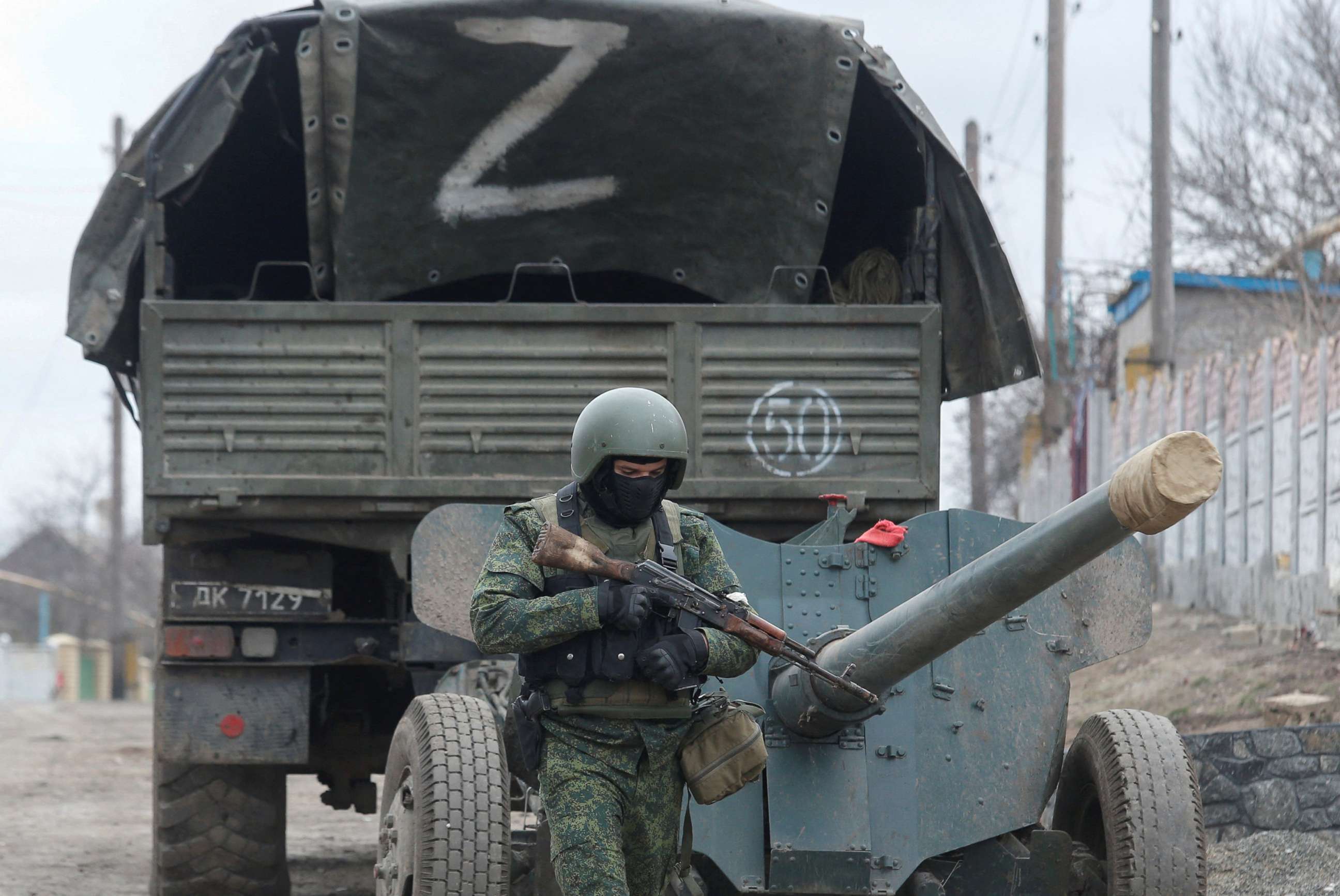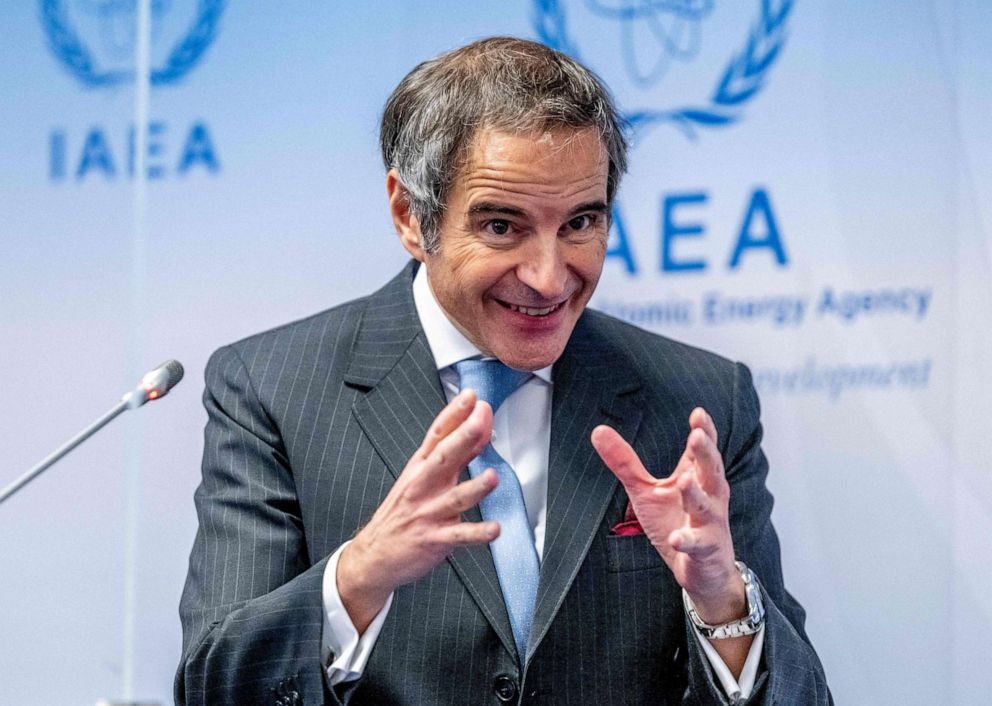Fighting around Ukraine's nuclear plants raises global concerns
A U.N. nuclear watchdog group said it's "gravely concerned."
As skirmishes broke out around Ukraine’s nuclear facilities, heated words were exchanged Wednesday during a meeting of the United Nations Environment Program between representatives of the warring countries, and a U.N. nuclear watchdog group warned the "unprecedented" nature of the fighting could lead to "severe consequences."
With worries already at an alarming level over Russian President Vladimir Putin putting his nuclear forces on high alert, a battle being waged in Ukraine for Europe's largest nuclear power plant is upping the anxiety over a possible calamity that would likely wreak havoc far beyond the boundaries of the war zone.
During a closing session with representatives of the U.N. Environment Program in Nairobi, delegates were given a chance to give final words and a Ukrainian representative took the opportunity to make a strong statement about what was happening in his country.
"Barbarians who pretended to be rescuers, right now attack our cities, destroy infrastructure, kill my fellow citizens and try to destroy everything," Andrii Pravendnyk, Ukraine's ambassador and permanent representative to the UNEP, told delegates.
Andrii Pravendnyk said Russian troops are trying to seize the country's nuclear power plants, adding, "Russia is conducting genocide against humanity."
"They say they've come to save Ukraine, but they are here to destroy my beautiful country," said Pravendnyk, who received a standing ovation at the end of his remarks.

Dmitry Maximychev, Russia's ambassador and permanent representative to the UNEP, responded that Ukraine's military forces have been attacking so-called pro-Russian "separatists" in the Donbas region of eastern Ukraine for eight years without any protest from the international community.
"The war, which led to the death of 12,000 people in the east of the country, killed by the hands of Ukraine soldiers and neo-Nazi units," the Maximychev told the assembly, espousing claims the U.S. and its Western allies say are false and were concocted by the Kremlin as an excuse to invade Ukraine.
"You have just supported them, distinguished delegates. It's them that you were offering your ovation. We didn't begin that war," Maximychev said.
Fighting continued Wednesday at the Zaporizhzhia Nuclear Power Station in Enerhodar, Ukraine, the largest nuclear power plant in Europe, both sides claimed.
The battle over the Zaporizhzhia plant prompted the head of the International Atomic Energy Agency, the U.N.'s nuclear watchdog group, to issue a warning over the "unprecedented" nature of this situation.

Rafael Grossi, director-general of the IAEA, said he and members of the agency are "gravely concerned" that a military conflict is happening for the first time amid the facilities of a large, established nuclear power program.
During an emergency IAEA board of governors meeting, Grossi said an incident affecting nuclear facilities "could have severe consequences, aggravating human suffering and causing environmental harm" beyond Ukraine's borders.
He said Russia informed the agency Tuesday that it had taken control of the Zaporizhzhya nuclear plant, but ABC News has not been able to independently confirm the report.
Last week, Russia seized control of the Chernobyl power plant, now shut down and sealed with a containment dome after an infamous disaster in April 1986.
Ukraine's nuclear regulatory agency SNRIU has requested "immediate assistance" from the IAEA to ensure the safety of Chernobyl and other nuclear facilities, Grossi said. He said the IAEA is assessing the request.
"Despite the extraordinary circumstances of an armed conflict causing increasing challenges and dangers, Ukraine's nuclear power plants are operating normally," Grossi said. "But while we may use expressions like 'normal operations' in a technical context, I want to emphasize there is nothing normal about the circumstances under which the professionals at Ukraine's four nuclear power plants are managing to keep the reactors that produce half of Ukraine's electricity working."




